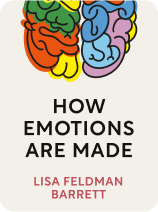

This article is an excerpt from the Shortform book guide to "How Emotions Are Made" by Lisa Feldman Barrett. Shortform has the world's best summaries and analyses of books you should be reading.
Like this article? Sign up for a free trial here.
What are heat of passion crimes? Why aren’t heat of passion crimes a credible defense, according to psychology?
Psychologist Lisa Feldman Barrett created a new theory of emotions in psychology to determine how human emotions are really made. According to Barrett’s new theory of constructed emotion, heat of passion crimes create inequity in the legal system.
Read on to find out why Barrett says heat of passion crimes aren’t credible, according to psychology.
Inequity in the Legal System: The “Heat of Passion” Crime
Barrett believes that society’s outdated view of emotions is reflected in our legal system. Nowhere is this more evident than in the idea that a criminal defendant isn’t fully responsible for his actions if he committed a crime “in the heat of passion.” For example, if a man walked in on his wife in bed with another man and, overwhelmed by anger and jealousy, he shot the man, he’d most likely receive a more lenient sentence than if he’d planned and carried out a murder for a non-emotional reason.
In actuality, although people may feel that their intense emotions have caused them to lose control of their actions, their brain (assuming it’s healthy) is always in control. The brain is always making predictions about which actions to take next, even if an individual is not aware this is happening.
Similarly, jurors make determinations about witnesses based on the witness’s facial expressions and body language. At a death penalty hearing, for example, whether a defendant displays remorse may be the difference between life in prison and the death penalty. But remorse, like all other emotions, has no single fingerprint. It’s not possible to determine how a witness is feeling inside simply by looking at their facial expressions and body language.
Because heat of passion crimes and other aspects of the legal system are based on an inaccurate model of how emotions work, judges and juries often reach inequitable, inconsistent conclusions, punishing those who don’t deserve it and failing to punish those who do.
| Heat of Passion Crimes and the Field of Law & Emotion Barrett’s observations of heat of passion crimes and the legal system’s outdated view of emotions can be situated within the larger context of the field of Law and Emotion, which argues that the law is not, as it has traditionally been understood, based purely on logic and reason. Law and emotion scholarship recognizes that emotion shapes the law, and the law needs to understand emotion accurately in order to function. According to Law and Emotion scholars, the law should not rely on untested or inaccurate assumptions about emotions but should make choices and design institutions in light of the best available scientific knowledge about how emotions work. This field of study emerged around the same time as legal scholars in other areas, such as feminism and critical race theory, began challenging the idea that the law exists independently of social and political influences. One recent study found, for example, that while witness testimony shouldn’t be given more credibility simply because it’s conveyed with emotion, this is in fact often the case. In addition, the emotional intensity of an event can distort a witness’s memory, but witnesses often testify about inaccurate memories in an emotional way, which makes them more likely to be believed. |

———End of Preview———
Like what you just read? Read the rest of the world's best book summary and analysis of Lisa Feldman Barrett's "How Emotions Are Made" at Shortform.
Here's what you'll find in our full How Emotions Are Made summary:
- A deep dive into what emotions really are and where they come from
- How some cultures have different emotions than others
- The difference between feelings and emotions






